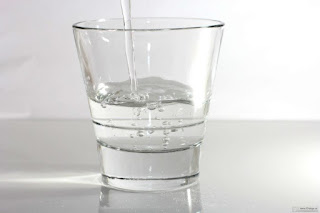- Get link
- X
- Other Apps
- Get link
- X
- Other Apps
 |
| White Oil |
White oil, also known as white mineral oil, is a mineral oil that is essentially colorless, odorless, and tasteless. It is a by-product of the refining of crude oil to produce gasoline and other petroleum products. White oil comprises a complex mixture of alkanes, or saturated hydrocarbons, that are of carbon chain lengths between C15 and C40.
Composition and Properties of White Oil
White oil is further refined through a multi-stage process to achieve a highly
refined state that is of medical or technical grade quality. This involves
steps like mild solvent extraction, caustic washing, acid extraction, clay
percolation, filtering, and vacuum distillation. The end product has a
composition dominated by isoalkanes with a minimum of aromatics, polar
compounds, and other chemical impurities.
Some key properties of White Oil include
high purity levels, chemical stability and inertness, low solubility, and
resistance to oxidation. It possesses a very high cetane number, meaning it has
excellent ignition quality as a diesel fuel component. White oil is considered
non-toxic and non-irritating to skin and tissues due to its non-reactive
saturated molecules. It also has excellent electrical properties with low
dielectric constants.
Uses of White Oil in Various Industries
Due to its purity levels and desirable physical properties, white oil finds
extensive applications across many industries:
Personal Care - White oil is widely
used as the base ingredient in makeup products like foundations, concealers,
and lip care items. It protects and moisturizes skin without leaving a greasy
residue. White oil is also present in bath products, hair care items, baby care
products, and topical ointments.
Pharmaceuticals - The non-reactive
and non-toxic nature of white oil makes it suitable as an inactive ingredient
in various oral and topical medications like creams, ointments, and laxatives.
It serves as an emollient, lubricant, or solubilizer in different formulations.
Food Processing - As a food-grade
mineral oil, white oil acts as a lubricant in food processing machinery. It
also finds uses as a diluent or softener in food applications like chewing gum
bases and candy coatings.
Electrical Insulation - The
excellent dielectric properties of white oil provide electrical insulation in
transformers, capacitors, and other electrical equipment components subjected
to high voltages.
Industrial Uses - White oil
lubricates machine parts and acts as a release agent in industries like
plastics, textiles, and metalworking. It has applications as a component in
sealants, caulks, and coatings used in construction.
Advantages of White Oil
Here are some major advantages offered by white oil:
- Inertness and chemical stability:
Being composed of saturated hydrocarbons, white oil shows high resistance to
chemical degradation or alteration.
- Non-toxic and hypoallergenic: It
poses very low risks of irritation, sensitization or systemic toxicity when
used in personal care, pharmaceuticals, or food products.
- Emollient and lubricating properties:
White oil hydrates skin and tissues while imparting a smooth, silky feel
through its lubricating effects.
- Electrical insulation: As an
excellent electrical insulator with low conductivity, white oil insulates
against transmission of heat and electricity.
- Bioavailability and cost-effectiveness: The mineral oil component is
readily absorbed or excreted from the body without residual effects. It offers
good value as an economical base oil.
- Versatility: White oil exhibits
diverse applications across a wide swath of industries due to attributes like
purity levels, stability and material compatibility.
Categories and Grades of White Oil
There are multiple categories and grades in which white oil is commercially
available to meet the requirements of different uses:
- Technical grades - Used for
industrial applications requiring high purity levels, these offer properties
like fixed boiling point ranges and low aromatic content.
- Pharmaceutical grades -
Manufactured as per stringent Good Manufacturing Practices, these are employed
in medicinal formulations and have controlled specifications.
- Food contact grades - Specially
produced to ensure food safety, they conform to FDA food additive regulations
for incidental food contact.
- Baby oil grades - Often denoted as USP/NF white oils, these minimize the
levels of potentially toxigenic impurities for sensitive skin applications.
- Hobbyist grades - Used in modeling
activities, these possess high purity for safe handling but without tight
analytical specifications.
Depending on carbon chain length ranges, white oils can be further classified
as light, heavy or polybutylene grades. Varying purification steps lead to
differences in end properties and prices across categories.
White oil is a versatile mineral base oil that has wide commercial uses owing
to properties like purity, chemical inertness and safety profile. Its robust
demand relies on essential needs across personal care, foods, pharmaceuticals
and industrial sectors.
Get more insights on White Oil
- Get link
- X
- Other Apps
Comments
Post a Comment